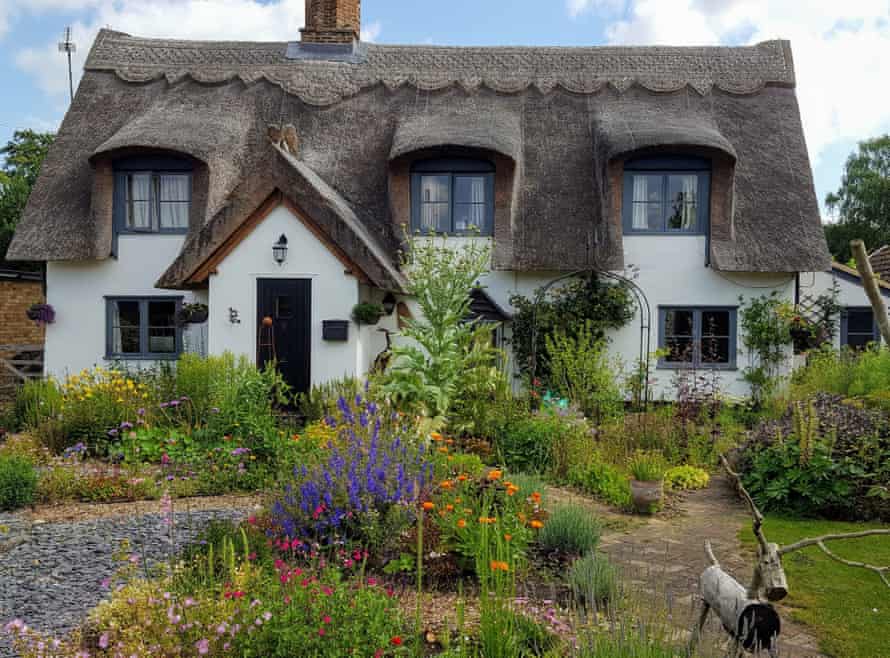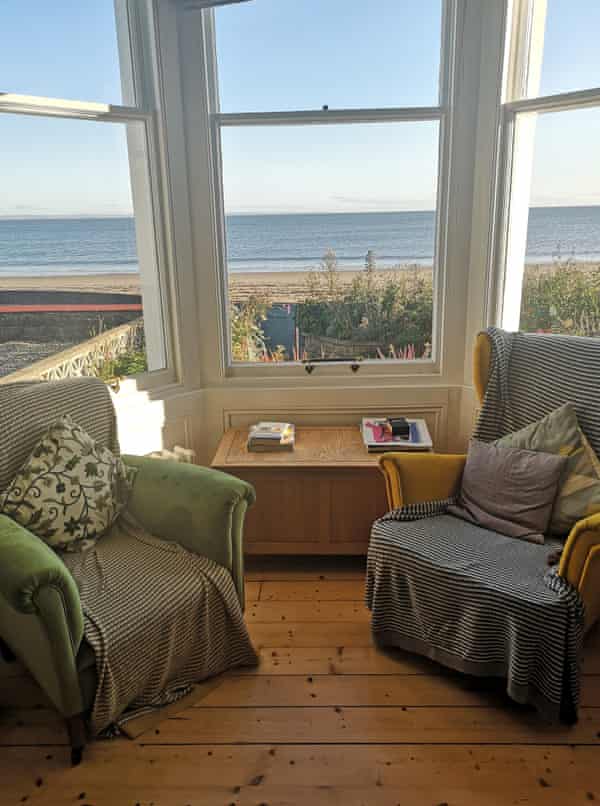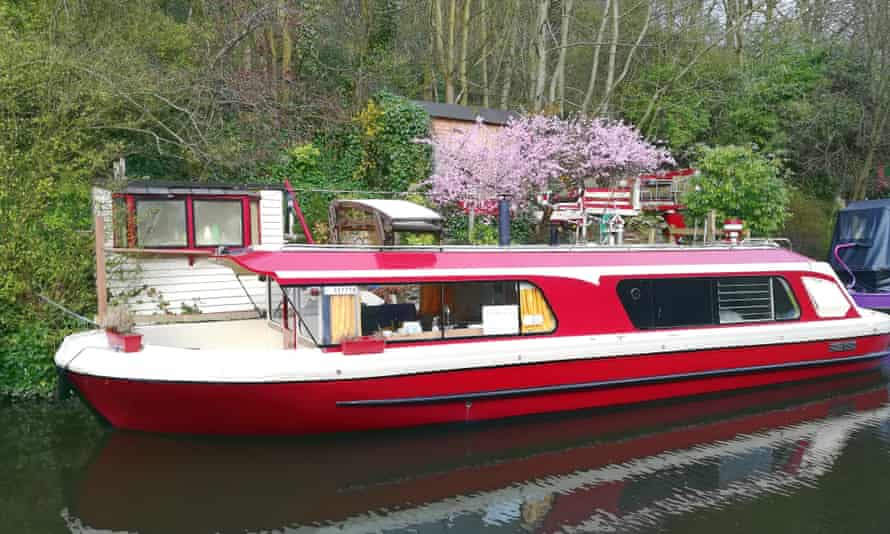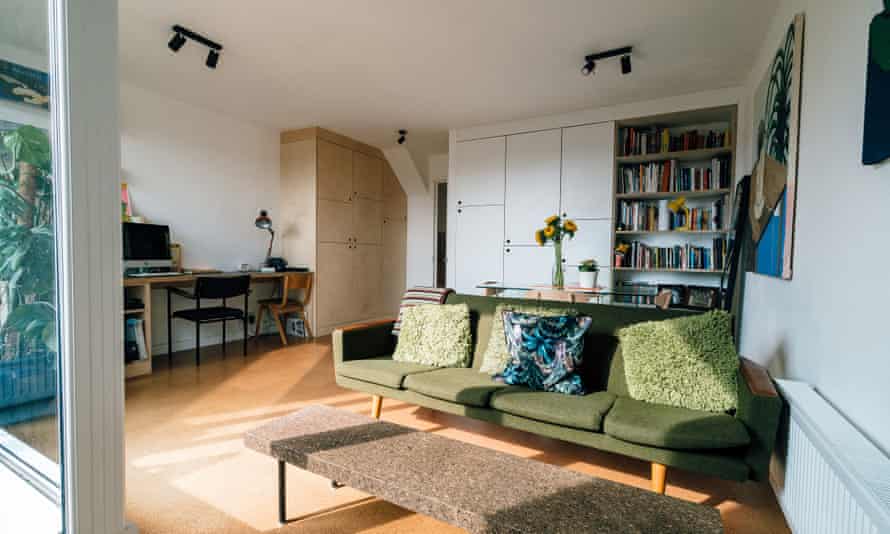Fed up with staring at the same walls? Desperate to be somewhere – anywhere – else but can’t find an affordable holiday cottage to rent? Why not swap your home with a like-minded soul in another part of the UK, and save this year’s summer holiday.
For years, those in the know have been using home swaps to travel the world or see different parts of their own country, saving huge sums on the cost of hotels or holiday homes as they go.
As a result of the coronavirus pandemic, home swapping could be about to come into its own. You and your family get to stay in a self-contained place with access to the facilities you have at home. It will hopefully be as clean as any cottage rental, and if you are staying in the UK, there are no pre-flight Covid tests, apps or vaccine passports to worry about.
Finding a swap is as simple as putting up a profile online and contacting people until you find someone who matches. It is much more time-consuming than a conventional trip but once you’ve agreed the dates – and given your house the clean of its life – you just pack up the car.
And the best bit about it, it’s almost free, meaning you have more money to spend on eating out or attractions: the things that make holidays more of a holiday.
Arguably, the Guardian has got the entire process covered through its tie-up with Home Base Holidays. In past articles on home swaps, the Money team has been rather lukewarm about the Guardian’s house swap website because it always had lots of UK homes listed and not much choice for those who were looking to go abroad.

However, with the rules around foreign travel still unclear, this summer the site fits the bill, with homes listed in almost every part of the UK.
“We’ve seen a boom in interest in recent months,” says Mark Sealy, the owner of Home Base Holidays, established in 1985. “People struggling to find holiday rentals in the UK are increasingly thinking of alternatives and are looking to try a house swap instead. Swapping homes is a fantastic way to travel in normal times but it is perfect for what’s going on in the world right now.”
The downside is that it does take quite a lot of work; to find the swap and get your house ready.
How does it work?
House swapping started among academic staff who were taking sabbaticals and teachers who wanted to go away for the long summer holidays but couldn’t afford to pay for six weeks’ accommodation. In the early days, the exchange organisations produced quarterly booklets featuring those looking to swap. Now it’s entirely web-based.
There are a handful of websites to choose from. HomeExchange.com is the biggest, with about 315,000 homes available around the world. However, if you are looking to swap in the UK this year, you will not find a site offering much more choice than the Home Base/Guardian site. You also get to swap with fellow Guardian readers.

On this site you can list your home for six months for £35 – or pay £59 for the full year, and there is a two-week free trial. Take flattering – but not too flattering – photos of your property and write a witty, but maybe not too witty, description of you and it. Include the things to do nearby and the realistic journey times to attractions further afield.
Don’t disguise any downsides. Swappers will be keen to know that you will have tidied up and that you will clean the house properly. Mention if there is a dishwasher and a garden – an absence of either will be a dealbreaker for some, for others it won’t be a problem. Put it all in the description – from pet allergies to car parking options.
Once your home is posted you can start contacting potential swappers who meet your requirements. Write a template letter and contact lots of other owners, and see what comes back. The more open to destinations and dates you are – and the more messages you send out – the more offers you are likely to get.
Don’t be concerned that no one will want to visit your home. People want to be in an area for a variety of reasons. They may have family living nearby. They might long to be in a city with a particular museum or in an area they are researching for a book.
Once you have a match, talk to the people on the phone to discuss how it will work and whether you both want to go ahead. Ideally, you want to find people with similar properties, and lives, to you. If you both have children the same age, their toys will suit yours. Retired couples will have different expectations to younger swappers. If it doesn’t feel right, pull out and wait for another opportunity.
It’s agreed – what next?

An impending swap is a good reason to fix those little problems around the house: the leaking tap or the cracked tile in the bathroom.
Home Base advises decluttering – it’s not unusual to put all the unwanted detritus of family life in one room that won’t be used by the guests. Valuable jewellery and tech can be put out of harm’s way.
A call to your insurer to advise it of the swap is a good idea. If it declines to cover your guests, buy top-up insurance. The specialist insurer Pikl.com will provide cover for 30 days for about £40. In my experience, most swappers take much better care of the other person’s home than they do their own. A glass or two may get broken but it’s unlikely to be a problem for most people.
House swappers usually provide a dossier for their guests with details of local attractions and recommended pubs and restaurants, nearby transport, useful information about your home such as how to turn off the alarm, TV system, wifi code, useful phone numbers (taxi, doctor, etc) and emergency contact details.
Cleaning and bedding
Even before Covid, the first rule of home swapping was that your home must be super-clean. Although the transmission of Covid-19 is now thought to be less likely through surfaces than a year ago, disinfecting the house before you leave is a must. Lots of regular swappers use a cleaning firm to give their home the full works before they depart.
Even once cleaning charges are taken into account, the bill for your break is still likely to be a fraction of renting a similar-sized house in Cornwall or similar.
In normal times, swappers usually put clean sheets on the beds and provide towels, which the guests throw in the washing machine as they leave. If you would prefer to take your own, agree it with the people you are swapping with. There are no hard and fast rules and as long as both parties agree, anything goes.

What if you are forced to cancel?
Home Base Holidays says last-minute cancellations happen very rarely but itthey are a risk.
The biggest fear this year is that one swapper could find themselves locked down again or test positive for Covid-19.
In truth, there is not a great deal to do about that, except look for a last-minute swap to take its place. The site promotes last-minute offers, and says it has saved plenty of cancelled trips in the past. The only consolation if it cannot be salvaged is that at least you won’t have spent thousands on a holiday you can no longer take.
House swap websites – the lowdown
HomeExchange.com is by far the biggest swapping site, with about 450,000 claimed listings, of which 315,000 are thought to belong to people currently interested in taking a holiday. It costs $150 (£108) a year to be a member. In general, big is good in the swapping world as you have a large pool of options, with, in this case, lots in North America. However, it also has a lot of UK homes listed. It has become overly complicated in recent years by the introduction of a points system for members to allow them to arrange non-mutual home exchanges.
Lovehomeswap.com is the second biggest, with about 13,000 listings all around the world. UK-based swappers have reported it works well and the listings have a useful rating score. It costs from £8 a month, paid annually.
Homelink.org is the oldest home exchange community – it goes back to 1953 – and costs £108 a year. It has about 7,000 active listings and a loyal customer base, many of whom have been with it for years. In comparison, the Guardian site has about 2,500 active listings.
Peoplelikeus.world is a good free site. It has about 3,200 listings, with lots in Europe. It is well laid out and easy to use – and did we mention it is free.
Switchome.org is another gratis site that is predominately listing homes in Europe – with about 2,500 in total.
Thirdhome.com is the place to go if you are lucky enough to have a luxury second home to swap. But you and your property first have to be screened to check “the club is a mutual fit”. Membership is free but each exchange costs between $495 and $1,395.
The ShareTraveler.com website has an excellent analysis of the various sites, including a few more worthy of consideration.
The Link LonkMay 01, 2021 at 04:49PM
https://ift.tt/2QK7Wdb
Trading places: could a home swap save your summer holiday? - The Guardian
https://ift.tt/2QoXNjh
Holiday

No comments:
Post a Comment